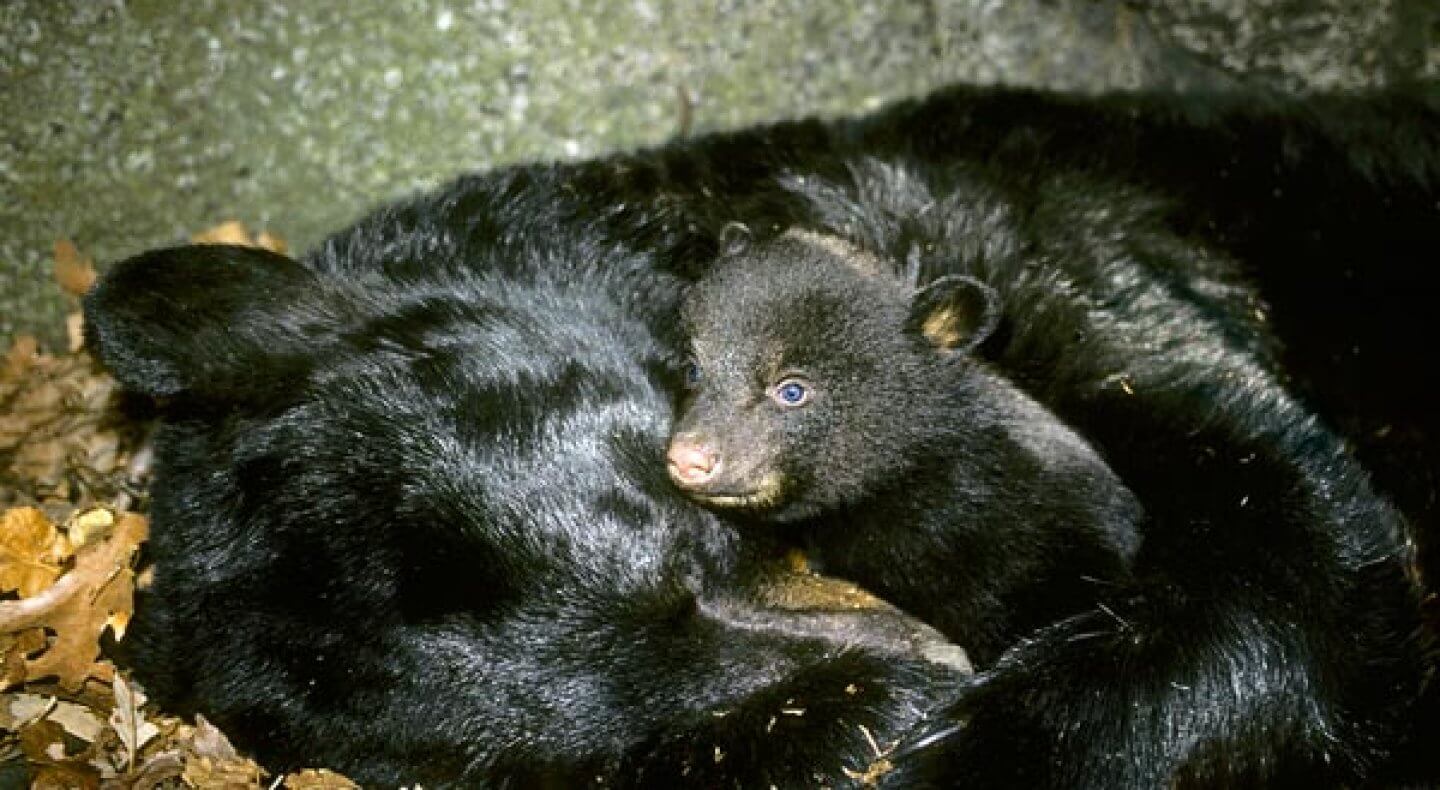Field Notes
Hibernation
February 8, 2022The term hibernation is used widely to describe the energy-conserving winter slumber utilized by many animals.. But “true” hibernation is a bit more specific.
A true hibernator like a chipmunk can drastically reduce their body temperature and heart rate. In fact, chipmunks can reduce their body temperature to near freezing and can slow their heart rate from 350 beats per minute to as low as 4 beats per minute. Because of these extreme bodily changes they sleep deeply and can’t wake quickly. However, they do slowly wake every few weeks to eat small amounts of stored food and pass waste.
On the other hand, a black bear’s winter state is called winter lethargy. While bears also slow their heart rate, it’s not nearly as drastic as true hibernators and their body temperature only drops a little, remaining nearly normal all winter. This means they can wake quickly if need be – so caution should be used near possible bear dens, especially around January or February, when mother bears awaken to give birth to their cubs. Bears don’t usually need to eat or defecate during their winter slumber, so if left undisturbed, they will sleep all winter long (3-4 months)!
Categorised in: Field Notes
